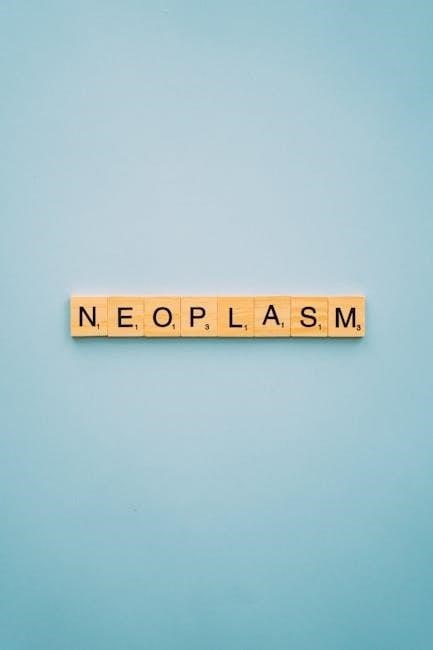
medical terminology worksheet pdf
Medical terminology worksheets are essential tools for learning and mastering healthcare terminology. These resources, often available as free PDFs, provide structured exercises like matching terms, fill-in-the-blanks, and word searches. Designed for students and professionals, they simplify complex medical vocabulary, making it easier to understand and retain. Regular practice with these worksheets enhances communication skills in healthcare settings.
What is a Medical Terminology Worksheet?
A medical terminology worksheet is an educational tool designed to help learners understand and master medical vocabulary. These worksheets typically include exercises such as matching terms with definitions, filling in blanks, and identifying word parts like roots, prefixes, and suffixes. They often focus on breaking down complex medical terms into their components, making it easier to decode and remember their meanings. Available in formats like PDF, these worksheets are widely used by students, healthcare professionals, and educators to practice and reinforce medical terminology skills. They cater to diverse learning styles, offering interactive and self-assessment opportunities to enhance proficiency in healthcare communication.
Importance of Learning Medical Terminology
Learning medical terminology is crucial for effective communication in healthcare settings. It provides a standardized language for professionals to accurately describe conditions, treatments, and procedures. Understanding medical terms enhances patient care by ensuring clear documentation and precise communication among healthcare teams. It also aids in building a strong foundation for further learning and professional development. Proficiency in medical terminology boosts confidence and professionalism, enabling individuals to navigate complex healthcare scenarios with accuracy. For students and aspiring healthcare professionals, mastering this vocabulary is essential for success in their careers. Regular practice with worksheets and exercises helps reinforce this knowledge, making it an indispensable skill in the medical field.

Components of a Medical Terminology Worksheet

A medical terminology worksheet includes roots, prefixes, suffixes, and anatomical terms. These components are the building blocks for understanding and constructing medical words accurately.
Roots, Prefixes, and Suffixes in Medical Terminology
Medical terminology is built from three main components: roots, prefixes, and suffixes. Roots are the foundation of medical words, often derived from Greek or Latin, representing body parts or conditions (e.g., “cardio-” for heart). Prefixes modify the root by indicating number, location, or direction (e.g., “uni-” meaning one). Suffixes denote procedures, diseases, or functions (e.g., “-itis” for inflammation). These word parts combine to form complex terms, enabling precise communication in healthcare. Worksheets often include exercises to identify and define these elements, helping learners decode unfamiliar terms effectively. Mastering roots, prefixes, and suffixes is crucial for understanding medical terminology and applying it in real-world scenarios.
Common Word Parts and Their Meanings
Understanding common word parts is key to mastering medical terminology. For instance, the root “cardio-” refers to the heart, while “neuro-” relates to nerves. Prefixes like “hypo-” (under) and “hyper-” (over) modify meanings, as seen in “hypoglycemia” (low blood sugar) and “hypertension” (high blood pressure). Suffixes such as “-itis” (inflammation) and “-ectomy” (removal) indicate conditions or procedures. Worksheets often include exercises that focus on these elements, helping learners decode and construct medical terms. By recognizing these building blocks, students can expand their vocabulary and grasp complex terms more efficiently. Regular practice with these exercises enhances retention and application in healthcare settings.
Anatomical Terms and Definitions
Anatomical terms form the foundation of medical communication, describing body structures and their locations. Key terms include “anatomical position,” referring to the body standing upright with palms facing forward. “Bilateral symmetry” indicates identical structures on both sides, like kidneys. “Contralateral” describes opposite sides, such as left and right. Worksheets often feature exercises where students match terms like “proximal” (near the center) and “distal” (far from the center) with their definitions. These terms are essential for accurately describing conditions and procedures. For example, “anterior” refers to the front, while “posterior” denotes the back. Mastering these terms enhances clarity in healthcare communication and documentation, ensuring precision in patient care and professional discussions.
Types of Exercises in Medical Terminology Worksheets
Worksheets include matching terms with definitions, fill-in-the-blank sentences, and word search puzzles to engage learners. These exercises help students decode and retain complex medical vocabulary effectively.
Matching Exercises: Terms and Definitions
Matching exercises in medical terminology worksheets pair terms with their definitions, requiring students to draw connections. These activities enhance active recall and strengthen memory associations. By linking terms like “anticoagulant” with “a substance preventing blood clotting,” learners improve comprehension. Such exercises are visually engaging, making complex terms easier to retain. They are particularly effective for beginners, as they provide clear associations and immediate feedback. Regular use of these exercises helps build a strong foundation in medical vocabulary, essential for healthcare professionals. Over time, this practice fosters confidence in using and understanding specialized terminology.
Fill-in-the-Blank Exercises
Fill-in-the-blank exercises in medical terminology worksheets require students to complete sentences or definitions by inserting the correct term. These exercises test knowledge of word parts, such as roots, prefixes, and suffixes, and their meanings. For example, students might fill in “anticoagulant” to describe a substance that prevents blood clotting or “cephalalgia” for a headache. These activities promote active learning and reinforce memorization of complex terms. By applying their understanding of medical word construction, learners improve their ability to decode unfamiliar terms. Fill-in-the-blank exercises are interactive, engaging, and effective for mastering medical vocabulary. They are widely available in free printable PDF worksheets, making them accessible for self-study and classroom use.

True or False Questions
True or false questions in medical terminology worksheets are designed to assess a learner’s understanding of key concepts and terms. These exercises present statements that require students to determine their accuracy. For example, a statement like “Medical terminology is primarily based on Greek and Latin words” would be marked as true. These questions help reinforce fundamental knowledge and promote critical thinking. They are often included in free printable PDF worksheets and cover a wide range of topics, from basic word parts to complex medical conditions. True or false exercises are an effective way to test retention and understanding, making them a popular component of medical terminology study materials.
Word Search Puzzles
Word search puzzles are a fun and interactive way to learn medical terminology. These exercises, often included in free printable PDF worksheets, involve finding and circling medical terms hidden within a grid of letters. They help learners become familiar with the spelling and recognition of key terms. Puzzles may focus on specific themes, such as anatomical terms or common medical conditions. By engaging with word searches, students can improve their retention of complex vocabulary while enjoying the challenge of the activity. This format caters to visual and hands-on learners, making it a popular addition to medical terminology study materials. Many free PDF worksheets offer word search puzzles as a creative way to reinforce learning.

Benefits of Using Medical Terminology Worksheets
Medical terminology worksheets enhance understanding of complex terms, improve retention through practice, and provide practical application of knowledge, making them invaluable for healthcare learners and professionals alike.
Enhancing Understanding of Medical Terms
Medical terminology worksheets are designed to break down complex terms into understandable components, such as roots, prefixes, and suffixes. By focusing on these word parts, learners can decode unfamiliar terms, improving their ability to comprehend and apply medical language. These worksheets often include exercises like matching games, fill-in-the-blanks, and word searches, which engage users and reinforce retention. The structured format allows individuals to identify patterns and relationships between terms, making it easier to grasp medical concepts. Regular practice with these resources enhances not only vocabulary but also the ability to communicate effectively in healthcare settings. This foundational understanding is critical for both students and professionals in the field.

Improving Retention of Complex Vocabulary
Medical terminology worksheets play a crucial role in enhancing the retention of complex medical vocabulary. By breaking down terms into their basic components—roots, prefixes, and suffixes—learners can better understand and remember their meanings. Interactive exercises, such as matching games and fill-in-the-blanks, actively engage the mind, promoting deeper retention. Repetition and spaced practice, facilitated by these worksheets, strengthen memory over time. Additionally, visual aids like diagrams and word searches help reinforce learning, making complex terms easier to recall. Consistent practice with these resources ensures that healthcare professionals and students can confidently apply their knowledge in real-world scenarios, improving both accuracy and efficiency in communication. Regular use of these tools is essential for mastering medical terminology.
Practical Application of Medical Knowledge

Medical terminology worksheets offer a hands-on approach to applying medical knowledge in real-world scenarios. Through exercises like fill-in-the-blanks and matching terms, learners practice decoding and interpreting medical terms. These activities simulate tasks healthcare professionals perform daily, such as reading patient records or understanding diagnoses. By breaking down complex terms into roots, prefixes, and suffixes, worksheets enable users to grasp meanings contextually. This practical application enhances the ability to communicate effectively in clinical settings. Regular practice with these tools prepares students and professionals to apply their knowledge confidently, ensuring accuracy and clarity in healthcare documentation and discussions. This skill is indispensable for delivering high-quality patient care and collaborating with medical teams.

Resources for Medical Terminology Worksheets

Free medical terminology worksheet PDFs are widely available online, offering exercises like matching terms and fill-in-the-blanks. Educational websites and textbook companions provide additional resources for practice.
Free Printable Worksheets for Non-Commercial Use
Free printable medical terminology worksheet PDFs are readily available online for non-commercial use. These worksheets offer a variety of exercises, including matching terms, fill-in-the-blanks, and word searches, designed to help students and professionals learn and review medical terminology. Many resources are specifically created to align with textbooks or educational programs, ensuring comprehensive coverage of essential terms. They often focus on breaking down complex medical vocabulary into manageable parts, such as roots, prefixes, and suffixes, to enhance understanding and retention. Printable formats allow users to practice anytime, making them a convenient tool for self-study or classroom use. Regular practice with these worksheets can significantly improve proficiency in medical terminology.
Online Platforms and Educational Websites
Online platforms and educational websites offer a wealth of resources for mastering medical terminology. Websites like HubSpot and Teachers Pay Teachers provide free downloadable PDF worksheets, while platforms like Quizlet and Khan Academy offer interactive exercises and flashcards. These resources cater to diverse learning styles, allowing students to practice at their own pace. Many websites feature structured lessons, matching exercises, and word searches, making learning engaging and effective. Additionally, some platforms provide access to comprehensive guides, dictionaries, and video tutorials to supplement worksheet practice. These tools are invaluable for students and professionals seeking to enhance their understanding of medical terminology in a dynamic and accessible way.

Textbook Companion Worksheets
Textbook companion worksheets are tailored to specific chapters and topics, offering targeted practice for mastering medical terminology. These worksheets align with popular textbooks, providing exercises that reinforce key concepts. They often include matching exercises, fill-in-the-blanks, and true/false questions, allowing students to test their understanding. Many companion worksheets focus on breaking down complex terms into roots, prefixes, and suffixes, aiding in the decoding of unfamiliar words. Designed to complement textbook learning, these resources help students apply theoretical knowledge to practical scenarios. They are particularly useful for healthcare students, ensuring a strong foundation in medical terminology. Regular use enhances retention and proficiency in communication within healthcare settings.
Leave a Reply
You must be logged in to post a comment.